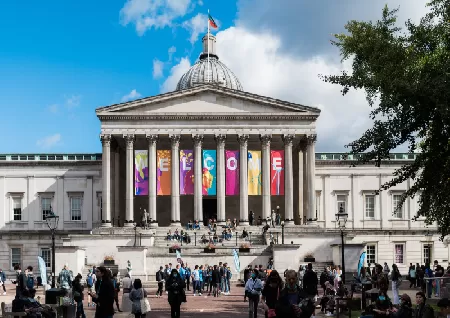University College London (UCL)

University College London, or UCL, is a public university that was established in 1826. It was the third university to be established in England, following the Universities of Oxford and Cambridge. UCL is headquartered in downtown London, although it also has campuses in Qatar and Australia. UCL also has exchange and research agreements, as well as other sorts of connections, with institutions all over the world, including the University of Montreal in Canada and Zhejiang University in China. UCL students come from over 150 different countries, and tuition is greater for students from outside the United Kingdom and the European Union. First-year undergraduates are guaranteed university housing. The academic calendar at UCL is divided into three terms, and the language of teaching is English.
UCL is divided into 11 academic divisions: arts and humanities, brain sciences, engineering, education, laws, life sciences, mathematical and physical sciences, medical sciences, population health sciences, social and historical sciences, and the Bartlett, which specialises in architecture and planning. Several hospitals and medical institutes are linked with the university, including the University College Hospital and the Royal National Throat, Nose, and Ear Hospital. UCL conducts research across many academic disciplines, although the primary transdisciplinary research topics include neuroscience, personalised medicine, populations and lifelong health, the environment, and eResearch. Throughout its history, the institution has been connected with research successes. One example is a UCL professor who received the Nobel Prize in chemistry in 1904 for discovering noble gases such as neon gas.
University College London is ranked #16 in Best Global Universities and ranked #8 in QS World University Rankings.
Related queries to this article
- University College London
- Global Universities
- QS World University Rankings
Read more articles and stories on InstaSity Education.





